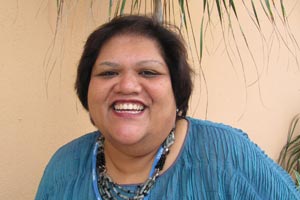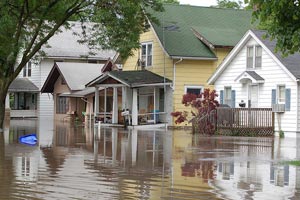In October, Maldives President Mohamed Nasheed installed solar panels on the roof of his home. The president himself, decked out in a hard hat, participated in the solar panel installation as part of the day of action organized by the group 350.org. It was more than a token gesture—in 2009, the country committed to going carbon neutral by 2020, which it says will be the world’s most ambitious climate change mitigation target for a single nation.
Discussion of mitigation is usually focused on the big players, like US and China, while it’s assumed that all that small island nations like the Maldives can do is adapt to the warming world. But the Maldives wants to turn that notion on its head—they’re not delaying action while the rest of the world waits.
“I don’t think we should wait for the big emitters,” said Maldivian Environment Minister Mohamed Aslam. “We are the front line, we can start dealing with it ourselves.”
It’s an ambitious pledge from a country with much at stake when it comes to global warming. The nation in the Indian Ocean is made up of 26 atolls, totaling 300 square kilometers. If the islands were stretched into a single strip of land, that would be 400 miles of coast, just over half a mile wide and only seven feet above sea level. “So it’s essentially a shoreline,” says Aslam. And it’s a shoreline that scientists predict could be underwater if sea levels continue to rise in a warming planet. (In 2009, the president held an underwater press conference to call attention to the country’s plight.)
Aslam notes that adopting renewable energy is in the Malidives’ favor economically and environmentally; right now the country relies heavily on diesel fuel for much of its energy needs. The government has already conducted an audit of their emissions, much of which comes from the shipping sector, a fact of life in island nations. But Aslam envisions solar, wind, tidal power, and renewable transportation fuels driving the nation in the near future—even if islanders don’t have all the solutions now. “The available options and possibilities will be far greater two, three years down the line,” he said. “We believe this is the only path we can choose to save ourselves and the entire global community.”
The plan, the country hopes, will also draw investors looking to start renewable projects on the islands. “What we are looking at is to become a laboratory for cutting edge technology,” said Mark Lynas, climate change advisor to the president.
All that water surrrounding the islands also means that there’s an enormous potential to harvest power from the sea. On Wednesday, Aslam and Scottish Minister of Energy Jim Mather signed an agreement at the Cancun talks to work together on a tidal energy assessment off the coast of the Maldives. The Scottish government agreed to fund a $75,800 scoping study of both the potential for tidal development and the electricity infrastructure need. It’s not a huge dollar figure, but the Scottish government has been paving the way on tidal energy. Earlier this year, the country announced plans for the first commercial scale wave and tidal project off the northern coast of the mainland. The country hosts the European Marine Energy Center, and is positioning itself to lead the world in new technologies for harvesting tidal power. Mather laid claim on Wednesday that they are the “Saudi Arabia of tidal power.”
As for the Maldives, Aslam is hoping that his country’s efforts help break the impasse in international negotiations. “We don’t have to wait for everybody else to do this,” said Aslam. “Once things start happening in the Maldives, others will see that is the path to choose.










